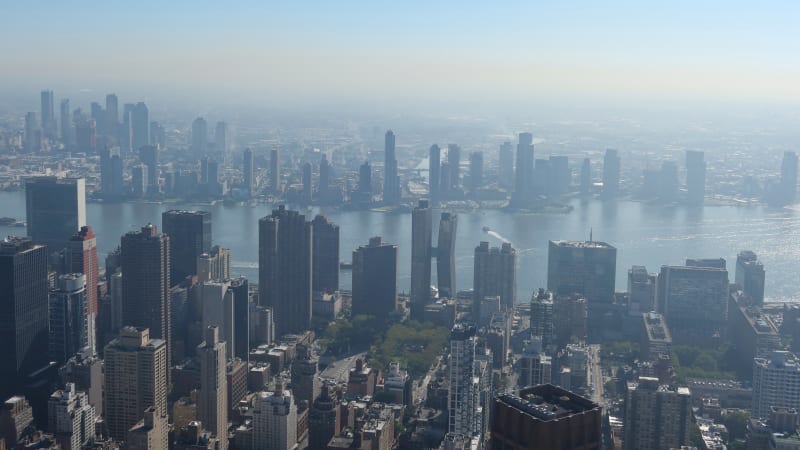US Supreme Court considers challenge to EPA's 'Good Neighbor' ozone rule

WASHINGTON — The U.S. Supreme Court is set on Wednesday to hear a bid by three Republican-led states and several energy companies to block an Environmental Protection Agency regulation aimed at reducing ozone emissions that may worsen air pollution in neighboring states.
Ohio, Indiana and West Virginia, as well as pipeline operators including Kinder Morgan, power producers and U.S. Steel Corp, are seeking to avoid complying with the EPA’s “Good Neighbor” plan restricting ozone pollution from upwind states, while they contest its legality in a lower court.
The Supreme Court did not immediately act on emergency requests filed in October by the challengers to halt enforcement, opting instead to hear arguments first, including on whether the EPA rule’s emissions controls are reasonable.
The challenge comes after a major 2022 ruling powered by the court’s conservative majority imposing limits on the EPA’s authority to issue sweeping regulations to reduce carbon emissions from coal- and gas-fired power plants under the Clean Air Act anti-pollution law.
At issue in the current dispute is an EPA rule, finalized in June by Democratic President Joe Biden’s administration, regulating ozone, a key component of smog, in 23 upwind states. The EPA said these states’ own plans did not satisfy the “Good Neighbor” provision of the Clean Air Act requiring steps to reduce pollution that drifts into states downwind.
The agency implemented a federal program to reduce emissions from large industrial polluters in those states – although separate challenges in lower courts have already paused enforcement in 12 of them, including West Virginia.
The case now before the justices involves litigation brought by Ohio, Indiana and West Virginia – all targeted by the rule – as well as pipeline operators, U.S. Steel, regional electricity generators and energy trade associations. In their suit in the U.S. Court of Appeals for the District of Columbia Circuit, they argued that the EPA violated a federal law aimed at ensuring agency actions are reasonable.
Some of the industry requests were specific. Kinder Morgan asked the justices to block the regulation as it applies to natural gas pipeline engines. U.S. Steel sought to prevent its enforcement against iron and steel mill reheating furnaces and boilers.
When the D.C. Circuit refused to block the rule pending its review, the challengers asked the Supreme Court to intervene. The EPA’s plan will force them to bear unreasonable costs and will destabilize the states’ power grids, the states wrote in a brief.
The Justice Department, defending the EPA, told the Supreme Court that blocking the rule for these challengers would “seriously harm downwind states that suffer from their upwind neighbors’ emissions” and expose their residents to public health risks.
On Jan. 16, the EPA issued a proposed rule to enforce the “Good Neighbor” plan in five more states: Arizona, Iowa, Kansas, New Mexico and Tennessee.



